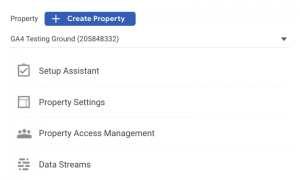Recently, I was pondering the gulf that exists between the fantasy of entrepreneurship and the reality. Pop culture portrays entrepreneurs as superheroes. They’re hailed as master innovators; economic revitalizers; and big, bold (and sometimes horribly bad) risk takers.
These depictions aren’t incorrect, per se, but they do add up to create a myth that entrepreneurship is elusive, exclusive, and elite. In reality, I believe anyone with a smart idea, the right drive, and a clear sense of commitment can become a successful entrepreneur.
Still, entrepreneurship isn’t easy — not now, not ever, and not for anyone. It takes grit, stamina, and an indomitable spirit to make it, but more than that, it takes a clear understanding of three basic assets — money, time, and knowledge — and how you can convert these critical resources into continued growth opportunities.
Transforming Assets Into Growth Opportunities
If you’re truly entrepreneurial, you’ll recognize money, time, and knowledge as the assets they are rather than the barriers they’re often perceived to be. For example, we’ve all heard the “I just don’t have time” excuse. Though time is often in short supply, it’s important to remember we all have the same number of hours in each day. It’s what we do with that resource that makes the difference.
You’ll bridge the fantasy-reality gap by first realizing your limitless potential — regardless of the resources on hand. This requires a truly optimistic and opportunistic mindset. You’ll gain momentum as an entrepreneur by then managing the confluence of these assets as they collectively transform into the actualization of your growth goals.
1. Money = Growth
For would-be entrepreneurs, money seems like the tallest, most intimidating barrier. But the problem is less about not having enough money and more about believing money is the only valuable resource.
Start by realizing that what you have to offer is something more valuable than dollars and cents. Instead, consider the value of your other assets (time and knowledge), and prepare to barter effectively, always considering what you want to gain from the exchange.
Once money is actualized in this exchange, know your flow. Remember: Where it flows, it grows! Unless you’re carefully tracking your spending, you won’t be able to identify wasteful patterns you could otherwise control. Once you understand the reality of the situation, you can start to direct the flow of those resources in a more conscious way.
As you’re managing the flow of cash toward growth-oriented activities, be clear about what you want versus what you need. Commit to the practice of careful, considerate spending. With the right frame of mind and a solid set of solutions, you can begin to turn your financial resources into greater opportunities to actualize your vision.
2. Time = Money
When you don’t have money, you do have time; frankly, this is much more precious than most humans imagine. As a busy entrepreneur, it’s easy to forget time as we hustle from one important meeting to the next — filling every other gap with reading, research, contemplation, planning, and the occasional beer meeting with co-founders and collaborators.
The days can fly by in an instant, causing once-distant deadlines to smack you dead in the face. Unfortunately, you can’t slow down the clock, but you can work toward getting smarter about how you use the little time you have to eventually convert your time into hard-earned cash.
Remember, just like cash flow, you cannot improve that which you do not track. Start by looking at how you’re actually using your time, then set a few goals to shift the behavior that seems out of line. There are multiple time-tracking applications to help you examine your time and shift your focus as needed. I like to use MinuteDock, but Toggl and TimeCamp are two alternative options.
Once you’ve gained clarity on exactly how you’re using your time, really think about the value of every working hour. Take your living expenses, pad them a bit to overestimate, and then divide that by the number of working hours in a day. Once you’ve figured out your hourly rate per working hour, take stock of your day-to-day activities and ask yourself, “Is it worth that?” One of my favorite questions to consider is this: What would the greatest, most successful version of yourself say about your time sheets today?
3. Knowledge = The Limitless Power and Potential of People!
And now, a few words on the most valuable asset you’ll ever have: knowledge!
As an entrepreneur, you start out not knowing a lot of things, but you can’t “fake it till you make it” forever. At some point, you need to actually make it. So you embark on a learning journey — a quest to convert what little knowledge you have into a powerful ecosystem of people supporting your vision. As an entrepreneur, your ability to inspire people to carry out your mission is critical. You can’t build a great business alone!
Here are a few strategies to tap into the power of the people who surround you:
Find the strongest community voices, and hold on.
When I was asked to lead SUM Innovation, I didn’t have a traditional background in accounting. I knew a few things because of my experience working at The Bookkeeping Center, a nonprofit focused on training full-charge bookkeepers. But I still needed to learn about the industry on a deeper level to develop a strong growth strategy for the firm.
Rather than explore traditional modes of education, I turned to online communities to discover the strongest, smartest voices impacting the industry. By listening to professionals rather than professors, I learned about the most important issues facing the accounting field today, got the inside scoop on the latest #AccTech, and witnessed real case studies rather than theories of application.
Soon enough, you’ll start to find powerhouse sources of information and insight that resonate with you — and can quickly guide you toward the execution of your vision. So listen and keep up!
Practice healthy skepticism.
Knowledge is essential, but inaccurate information can be poisonous. Business leaders have to respond to any piece of information with a healthy dose of skepticism. That doesn’t mean dismissing everything you hear. Rather, it means seeking additional sources, examining the context, bringing other people into the conversation, and being clear about how reliable and applicable the information is to your business objectives. But make sure to do your homework before taking action on that info!
Turn knowledge into action.
Once you’ve done your legwork, it’s time to convert this newly discovered information into an opportunity for growth. There’s a correlation between the people you surround yourself with and the knowledge your organization has. You’re tasked with managing this collective insight as a resource for growth. It’s certainly not easy!
And when you’re blessed with the opportunity to employ these people, cherish that deeply. Elevate, celebrate, and continue to inspire.
You can bask in your egocentric, self-made entrepreneurial mindset until you’re blue in the face. But at the end of the day, you can’t possess all of the knowledge in the world, and you certainly can’t take action on all of that knowledge.
The more knowledge you need, the more people you need — because knowledge is nothing without informed individuals to carry out your business’s objectives. Surround yourself with people you can collaborate, communicate, and eventually convert group knowledge into group action with. That’s the true meaning of people power.
It’s an achievement to get any business off the ground and to sustain it with engineered growth. Every mile on the road to success is hard-earned, but anyone can start the journey. Once you can convert your resources into opportunities, it simply becomes a process of putting one foot in front of the other, day after day.
Business & Finance Articles on Business 2 Community(62)
Report Post






